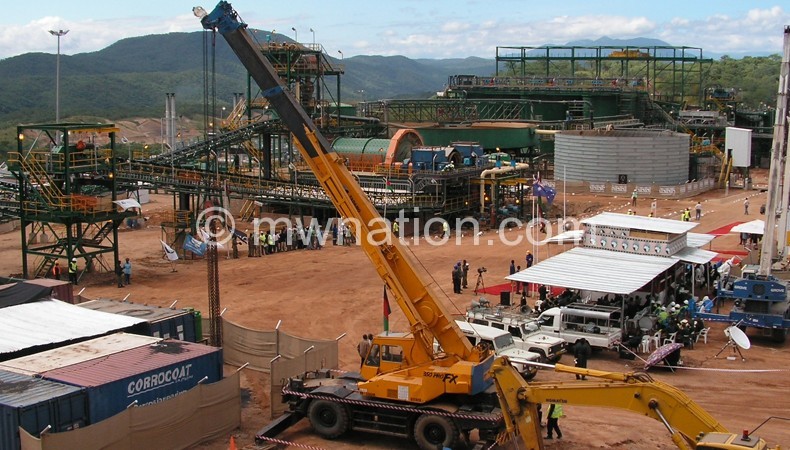New investors in Kayelekera Uranium Mine in Karonga, Lotus Resources Limited, says it wants to grow resources to ensure a long shelf life of the mine.
The Australian mining firm’s managing director Keith Bowes said in an e-mail response on Thursday that in view of its licence renewal and the pick up in uranium prices, they are positive that the mine can support a viable long-term operation.

He said: “Lotus Resources recognised that part of the attraction of the Kayelekera Project when it acquired it from Paladin Energy in March 2020 was the potential to increase the existing uranium resource from the current 37.5 million pounds by undertaking exploration programmes.
“The programme itself would initially focus on the potential of the existing mining licence through extensional drilling around the current resource and investigating a number of geophysical anomalies that look like they have potential for more uranium mineralisation.”
Bowes said the second part of the exploration programme will look at the opportunities on the exploration leases the firm now owns.
He said the work will involve reviewing historical work, undertaking some mapping work and potentially looking at drilling if the results from the mapping look promising.
“Lotus’ intention is also to look for new ground in Malawi that could host uranium deposits,” he said.
Last month, the Malawi Government renewed the firm’s 15-year mining licence on September 1.
Karonga Diocese Catholic Commission for Justice and Peace desk officer Louis Nkhata, whose institution has been closely following events at Kayelekera Uranium Mine, is on record as having said they expect locals to benefit from the project this time.
But Ministry of Mining Principal Secretary Joseph Mkandawire said the company will not restart operations until issues such as environmental impact assessment are done.
The mine, whose emergence boosted economic prospects for Malawi, was opened in 2009 and produced 10.9 million pounds between 2007 and 2014.
But Bowes is positive that resumption of mining at Kayelekera will provide jobs, taxes and royalties to the government, with local service providers and contractors having opportunities to enter into contracts with the company.
Bowes added that the mine also provide training on the mine in multiple disciplines to enable local learn new skills.
He said: “As part of the new mining licence, we are also entering into a Community Development Agreement with our local communities in which a portion of the company’s profits will be available for community projects that have been selected by the local people.”
Kayelekera Uranium Mine, Malawi’s biggest mining venture, was placed under care and maintenance in February 2014 following the tumbling of global uranium prices in the aftermath of the Fukushima nuclear disaster in Japan, which forced the closure of nuclear power plants across the world.
Of late, uranium prices have surged to their highest level since 2014 at between $40 (about K32 935.60) and $45 (about K 37 052.55) a pound.
Source: The Nation_October 5, 2021_By Orama Chiphwanya
